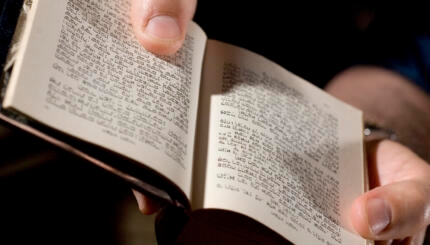When it comes to Jewish healing prayers, the Mi Shebeirach gets all the glory. That’s the one recited publicly in the synagogue, usually right before the Torah is returned to the ark. And it’s the one set to the beautiful melody by Debbie Friedman.
But the Mi Shebeirach is not the only Jewish prayer that asks God for healing. Each day in the Amidah we recite Refaeinu (“Heal Us”) as part of the middle section of blessings that include requests for knowledge, forgiveness, repentance, redemption and prosperity.
The prayer begins as follows:
רְפָאֵנוּ ה’ וְנֵרָפֵא. הושִׁיעֵנוּ וְנִוָּשֵׁעָה כִּי תְהִלָּתֵנוּ אָתָּה. וְהַעֲלֵה רְפוּאָה שְׁלֵמָה לְכָל מַכּותֵינוּ
Heal us, O Lord, and we shall be healed, save us and we shall be saved, for You are our praise. Bring complete healing to all our wounds.
The rabbis in the Talmud question why Refaeinu is placed after the requests for repentance, forgiveness and redemption. They conclude that prayer for physical healing can only occur after requests for spiritual healing. As Rabbi Adin Steinsaltz notes, only when one has been redeemed from spiritual ailments are they able to ask for physical health.
With your help, My Jewish Learning can provide endless opportunities for learning, connection and discovery.
The link between spiritual and physical healing is made plain in the source for this prayer in the Book of Jeremiah. The verse from Jeremiah 17:14 — “Heal me, O LORD, and let me be healed; Save me, and let me be saved; For You are my glory” — is also the last line from the selection from the books of the prophets that is read alongside the Torah portion of Bechukotai. That portion describes in harrowing detail the illnesses and terror and maladies that will befall the Jewish people if they do not follow the Torah. The rabbis understood those illnesses came not from disease, but as punishment for misdeeds or as a means of spiritual refinement. By linking the verse from Jeremiah with this Torah portion, they were emphasizing that true healing can only come from God.
Refaeinu concludes by emphasizing this point:
כִּי אֵל מֶלֶךְ רופֵא נֶאֱמָן וְרַחֲמָן אָתָּה. בָּרוּךְ אַתָּה ה’, רופֵא חולֵי עַמּו יִשרָאֵל
for You are God and King, the faithful and merciful healer. Blessed are You, O Lord, Who heals the sick of his people Israel.
With God as the ultimate physician, this supplication not only asks for a cure to our physical wounds, but understands that our spirit must be part of this healing. What that healing will look like is unknown to us, so we ask God to be faithful and merciful. We ask that the healers we do know be guided by God’s compassion — if not to completely cure, then to alleviate suffering.
Like all prayers in the Amidah, Refaeinu is written in the plural, inviting us to pray for all those who are ill. But it’s equally important to remember that the textual source in Jeremiah is written in the singular. As Rabbi Reni Dickman has taught, this reminds us that even as we pray for the health of many, it is important to look after our own physical and spiritual health and ultimately to look to God for a complete recovery.



